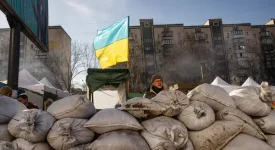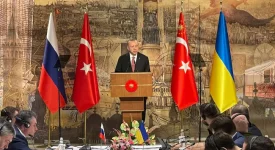The European Union is striving to maintain its role as a main political actor in a multi-polar Mediterranean neighbourhood. The emergence of new powers such as the Gulf countries, China or Turkey is transforming the classic elements of the international relations of the region. In addition, the new political actors and regimes of the southern shore of the Mediterranean are consolidating a dense and new network of diplomatic alliances.
The results of the last Euromed Survey conducted by the European Institute of the Mediterranean (IEMed) in Barcelona confirm these hypotheses. The Survey, to be released soon at www.iemed.org, gathers the opinion of 843 actors and experts on the progress, achievements and shortcomings of Euro-Mediterranean relations and has been conducted on a yearly basis with the aim to cover a whole spectrum of policy issues and to monitor developments and perceptions in Euro-Mediterranean area. This year’s results clearly show that despite its projection as an economic giant, the EU strives to turn such economic power into political influence.
Respondents consider that the EU will have a similar influence to that of the Arab League and Turkey while Saudi Arabia and the United States will be more influential than Brussels. At the same time, around 40% of them believe that the EU will have less leverage in the region than China. Most of the respondents also view the EU as a preferential trading and economic partner for the Mediterranean Partner Countries (MPCs), especially for the Maghreb, whose exports depend on the EU market with quotas up to 70% in the case of Tunisia. The picture is less optimistic when the delivery of EU promises in terms of support for the democratic transition is taken into consideration.
Despite the unfavourable economic context, the EU has mobilised substantial amounts of money, but fewer advances have taken place in the two remaining axis of intervention: market access and mobility. Member States continue to be reluctant to open their markets to imports of certain manufactured and agricultural products from the southern Mediterranean. Arab countries, in contrast, have multiplied by seven their trade relations with Turkey in just eight years, at the same time as bilateral exchange with China has grown an average of 22.1% per year since 2011.
The mobility partnerships are conditional on the adherence of third countries to the European security instruments and thus result in forms of highly selective, temporary and restrictive migration. Morocco signed a mobility partnership last June, but its appeal remains limited for countries such as Egypt, which has refused to start negotiations for the establishment of such an agreement.
So to what extent can the EU transform its economic potential in the southern Mediterranean into political and diplomatic influence? Most respondents express a clear preference for the EU to remain neutral or to act upon the demands expressed by the Mediterranean Partner Countries (MPCs). This coincides with the statements of European political leaders who, since the outset of the Arab Spring, have expressed their will to act on demands issued from the countries in the region, thereby decreasing the possible accusations of external interference.
Respondents would nonetheless prefer that the EU becomes more involved in the most conflictual scenarios of the region, such as Palestine and Syria. The EU’s policy towards Syria recalls the prevalence of theories on the capability-expectations gap in European foreign policy, according to which the EU is expected to be greatly involved given the pressing challenges for peace and international security while its internal divisions prevent it from establishing itself as a significant actor.
The scenario of self-imposed caution also responds to the limitations of the EU’s response to the Arab Spring. These include a lack of strategic vision for the region, an economic and institutional crisis that limits the Union’s external projection, the re-nationalisation of the external policies of its Member States and the division between the “big three” (France, United Kingdom and Germany) on issues such as the military intervention in Libya or the recognition of Palestine as an observer state in the United Nations. All of them are elements that have acted at the expense of a decisive and strategic response to the tectonic changes taking place in the Arab world.
* This article was co-authored by Tiziana Trotta who is currently Junior Research Fellow at the IEMed






